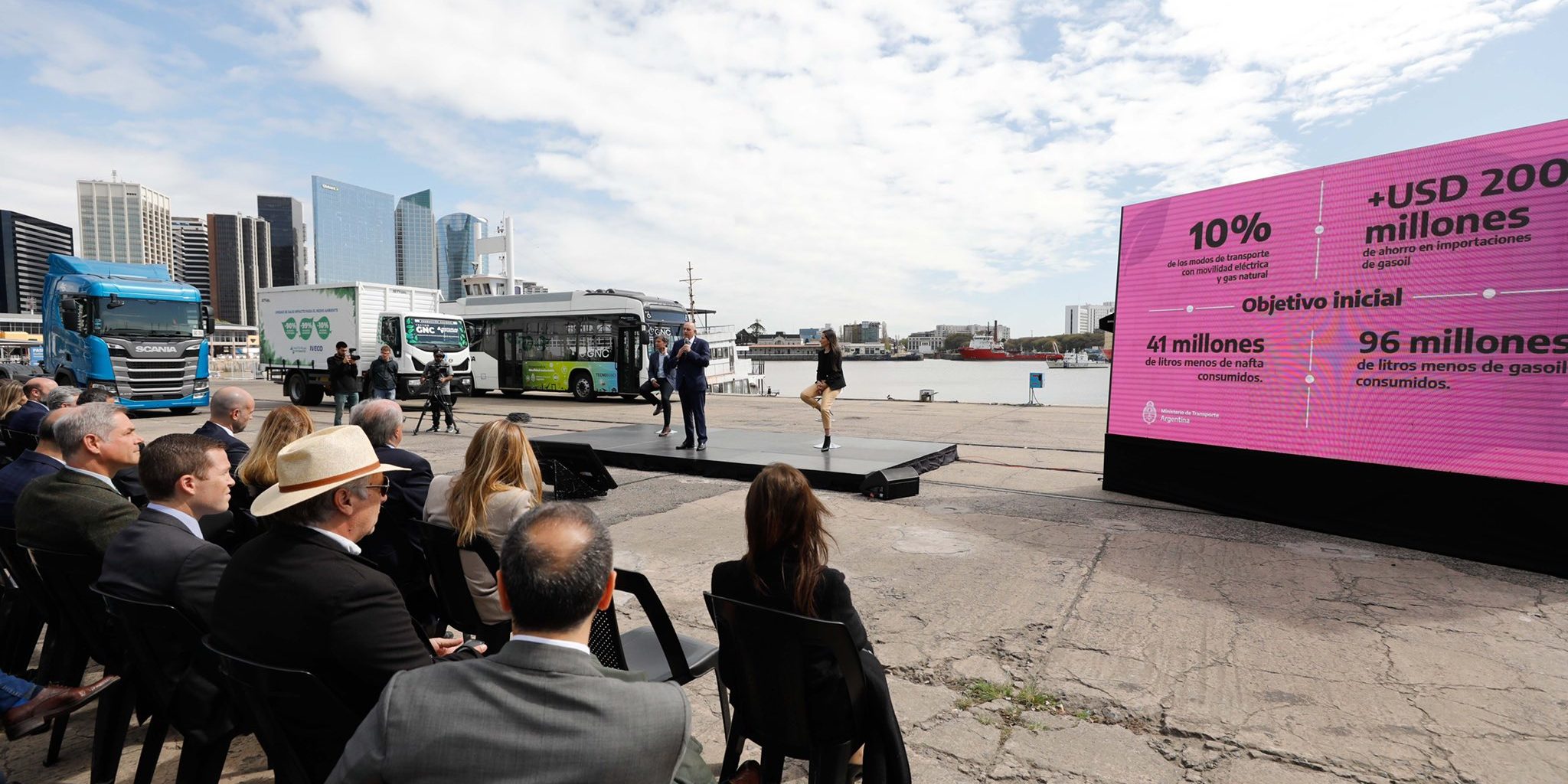Within the framework of the Sustainable Mobility Week, the Minister of Transport Alexis Guerrera presented the “National Plan for Sustainable Transport”, which seeks to advance with the energy transition in all modes of transport, both for passengers and cargo transport, as well as for private vehicles, and promote the use of cleaner energies. It includes three specific central programs to implement a roadmap for the year 2030.
The plan contains the set of strategies, measures, policies and instruments to be implemented until 2030, promoting the reduction of greenhouse gas (GHG) emissions and their effect on Argentina and the region. In addition, it will allow generating savings for the country, due to the reduction and subsequent substitution of energy imports, promoting national industry, taking care of the health of people and the planet.
“With the launch of the National Plan for Sustainable Transport, within the Argentine commitment to achieve the emission goals for the coming years, we demonstrate the joint work with other ministries and the entire national government. It is a tool to coordinate efforts, and its axes are the incorporation of natural gas, but also with a perspective on electromobility, providing the optimization of resources, and creating new regulations,” said Minister Guerrera.
“We are talking about a very strong impact if we gradually manage to transform everything that mainly runs on diesel to natural gas by 2023, generating a large work table with all the national and international actors. This work is between everyone, it is for everyone and it is for Argentina”, he added.
The Plan launched by the government covers the development of actions with three main programs: renovation and adaptation of fleets towards natural gas, in the first instance; electric mobility; and the incorporation of new technologies to supply cargo and passenger vehicles.
“We talk a lot about gas because it is the natural resource that is most available in Argentina and it has a distribution chain that is the most extensive in the country. With YPF we have created productive corridors, with Enargas we work on high-flow peaks so that long-distance buses and trucks have to wait less and less at service stations,” concluded Alexis Guerrera.
In this sense, this “National Plan for Sustainable Transport”, explained during the conference by the Chief of Staff of the Ministry of Transport Álvaro Errea and the Undersecretary of Planning and Coordination of the Ministry of Transport Micaela Morán, defines a concrete route at the national level to accelerate the adaptation of the infrastructure and operation.
For this, short and long-term objectives were set. In an initial stage, it is estimated that 10% of the new vehicles that are incorporated into public roads will run on natural gas (9%) and electricity (1%). This will generate annual savings of 41 million liters of gasoline and 96 million liters of diesel. In this way, only for next year an approximate saving of diesel imports of 200 million dollars is estimated.
Likewise, by 2030, there is a bet that there will be 15,000 buses running on natural gas, generating savings of 1,800 million liters of diesel; 150,000 natural gas trucks, reducing diesel consumption by 2,600 million liters; and that 15% of the total vehicle fleet is natural gas powered.







